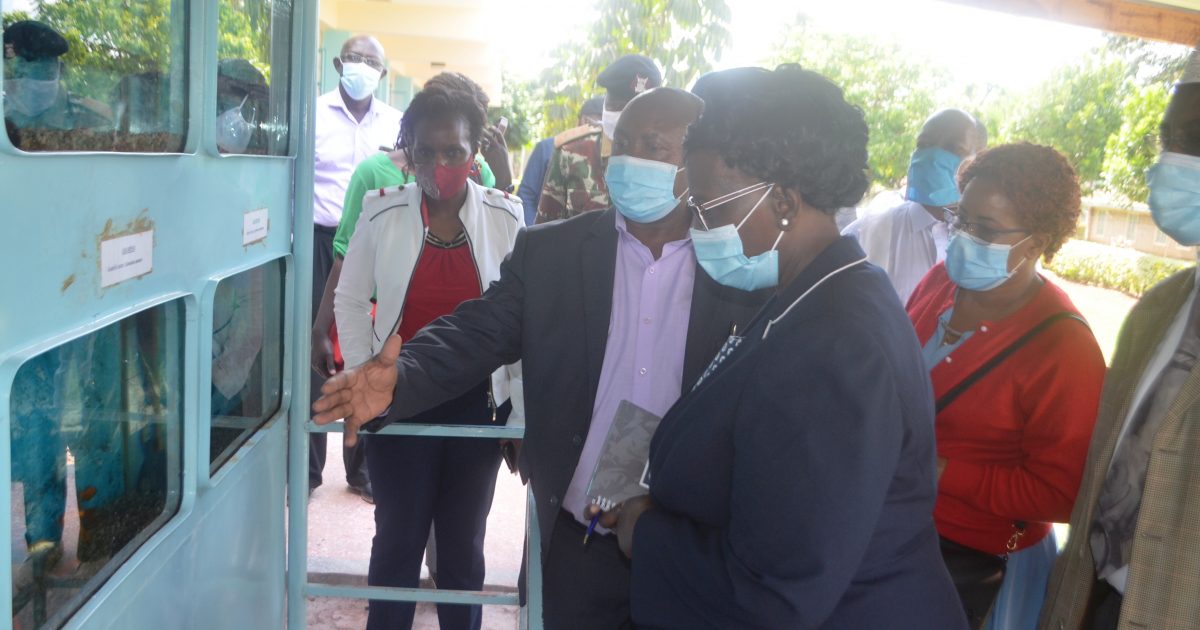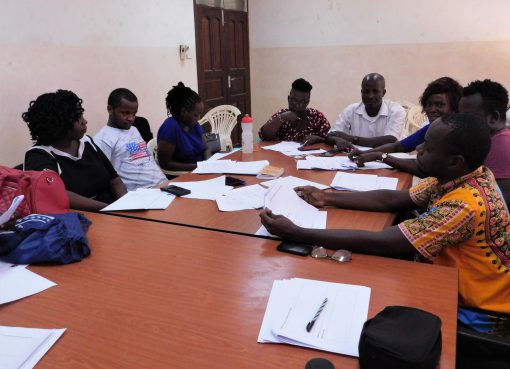

The government is spending Sh.200 million for the upgrade of the National Aquaculture Research Centre at Sagana in Kirinyaga County.
The Chief Administrative Secretary Fisheries Department (CAS), Jebii Kilimo said the money was being used to improve the training facilities which include construction of a modern administration block, a kitchen and the hostels.
Speaking on Monday when she made a familiarization tour of the facility, Kilimo said they have partnered with TVET to qualify to give certificates to students after they are through with the programme.
She said the training would involve fish keeping in green houses using very little water without the use of ponds.
“The green house project allows the plants and fish to grow in a short period of time and also conserves water so that even in places where there are no lakes or a lot of water, they can use very little household water,” she explained.
Kilimo said the training aimed at equipping the youth with skills on fish farming which would translate to increased fish production in the country.
“If the nation has enough fish, it will be cheaper than imported ones and this will allow fair competition in the market,” Kilimo said.
She said people do not have to live near the lakes to be able to keep fish as farmers were now being trained on how to rear fish in even smaller spaces.
“What I see are job opportunities being created by the State Department of Fisheries under the Ministry of Agriculture as fish farming is one of the fastest income generating activity,” she said.
The official said a fish farmer is able to harvest and sell his produce after three months making the farming very profitable.
Kilimo said the entry to the training has been simplified and required one to only be able to understand English and Kiswahili.
“All a farmer require is a 15 by 20 meter piece which can stock 100 fingerings,” Kilimo said.
She said farmers would no longer require big land sizes for aqua-culture farming since they only required a 15×20 meter piece to stock 100 fingerlings.
“These 100 fingerlings take between 4- 6 months to mature and with now enhanced capacity, our farmers will be able to undertake this venture as an economic one since money will be flowing into their pockets after the short duration,” she said.
She said aquaponic farming being introduced into the fish producing areas was the new frontier since a small plot was enough with the modern fish production technology for income, nutrition and food security.
“Aquaponic fish farming is done in a green house where waste from the fish is passed to vegetables grown in the same environment leading to water saving and maximum utilization of the plot leading to sustainable farming and income generation,” Kilimo noted.
On the past economic stimulus programme introduced by the government in 2009/2010, Kilimo said the project experienced teething problems from where lessons were learnt.
Under the stimulus programme, the government set funds to construct 200 fish ponds in all 140 political constituencies where fish farming is carried out.
The government also provided each pond with 15 kgs of fertilizer and 1000 fingerlings which was to give the famers a jump start.
But ten years down the line, in some constituencies not a single pond exists despite the billions sunk into the venture.
“Kuteleza sio kuanguka (to slip is not to fall). The fact that this programme flopped does not mean that we are still lying flat and beaten but it was a wakeup call hence my being here today to jump start this crucial aqua-culture sector of our economy,” she said.
“With a different approach this time round, we are set to succeed but I must urge our farmers to intensify production to meet the national demand which is the only way to reduce flooding the markets with cheap imports from China,” added Kilimo.
She said under the 2009/2010 economic stimulus, there was no real ownership of the project since the farmers did not realise the economic potential of fish farming.
By Irungu Mwangi




